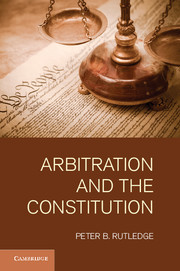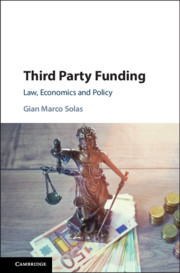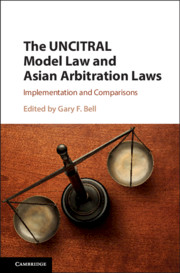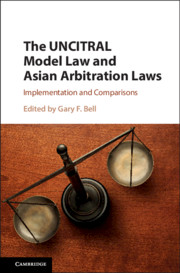Arbitration and the Constitution
Arbitration has become an increasingly important mechanism for dispute resolution, both in the domestic and international setting. Despite its importance as a form of state-sanctioned dispute resolution, it has largely remained outside the spotlight of constitutional law. This landmark work represents one of the first attempts to synthesize the fields of arbitration law and constitutional law. Drawing on the author's extensive experience as a scholar in arbitration law who has lectured and studied around the world, the book offers unique insights into how arbitration law implicates issues such as separation of powers, federalism and individual liberties.
- First ever systematic account of the relationship between arbitration law and constitutional law of the United States
- Draws on author's experience lecturing and studying around the world
- Offers unique insights into the ways that two fields of law influence each other beyond express application of doctrine
Reviews & endorsements
"Arbitration and the Constitution constitutes one of those few pieces of scholarship that really opens the door to a new way of thinking about a particular issue. While the combination of arbitration and constitutional law may not yet be as predictable as Mom and apple pie, the visionary work of Professor Peter Rutledge has been invaluable in introducing this important subject to audiences in the United States and beyond."
--S.I. Strong, University of Missouri School of Law, reviewing for the Cardozo Journal of Conflict Resolution
"Professor Rutledge’s Arbitration and the Constitution offers a thoughtful and provocative study of what, in the United States, are surprising companions... [He] combines a rich historical and doctrinal study with incisive observations and provocative prescriptions, all informed by practical experience in both domestic and international arbitrations."
--Gary Born, Wilmer Cutler Pickering Hale and Dorr LLP, reviewing for Kluwer Arbitration Blog
Product details
November 2012Hardback
9781107006119
218 pages
235 × 156 × 15 mm
0.46kg
Available
Table of Contents
- Part I. Arbitration and Separation of Powers:
- 1. Article III and judicial review
- 2. Executive power and the arbitral award
- Part II. Arbitration and Federalism:
- 3. Preemption and the residual role of state law
- 4. The significance of party choice
- Part III. Arbitration and Individual Rights:
- 5. State action and due process
- 6. The jury right.





